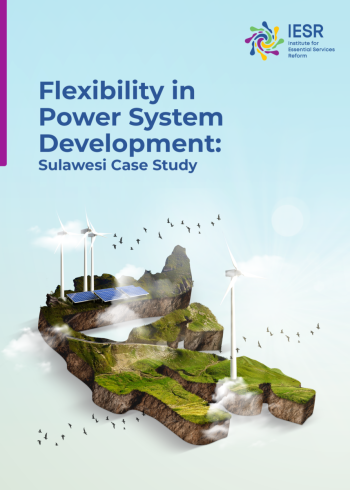This publication, titled Flexibility in Electricity System Development: A Case Study of Sulawesi Island, examines in depth how Indonesia’s electricity system can transition towards net-zero emissions by 2060, with a focus on the role of variable renewable energy (VRE). Sulawesi Island was chosen as a case study due to its rapid VRE growth, geographic complexity, and strategic position in the development of the national industry, making it an important model for understanding the challenges and opportunities of the broader energy transition in Indonesia.
This study analyzes the evolution of Sulawesi’s electricity system until 2060 using PLEXOS modeling, both in the policy-based (RUKN) and lowest-cost scenarios. The study results show a significant increase in the need for system flexibility as VRE penetration and demand variability increase. Daily flexibility needs are the most critical, while seasonal flexibility needs show the sharpest relative increase.
To address the growing need for flexibility, this publication identifies battery energy storage systems (BESS) and inter-island interconnection as the most effective long-term solutions. BESS, especially with variable storage durations, are well suited to meet daily flexibility needs, while interconnections to Kalimantan and Nusa Tenggara can balance supply and demand over longer time scales. Interestingly, the lowest cost with imports (LCWI) scenario shows a clear preference for VRE, bioenergy, and BESS over nuclear power, while achieving an average generation cost reduction of 27% in 2060 with the same emission levels as the RUKN scenario.
This publication also highlights Sulawesi’s bioenergy potential that has not been optimally utilized in current planning. Recommendations presented include integrating flexibility assessments into long-term electricity planning, reforming more flexible power purchase agreements (PPAs), establishing a regulatory environment that supports cost-effective BESS deployment, and developing dedicated mechanisms for ancillary services. With the right planning, investment, and policy reforms, Sulawesi can become a leading example of a flexible and low-carbon electricity system, providing valuable lessons for Indonesia’s national energy transition.

